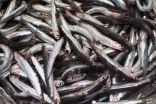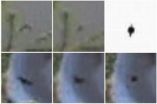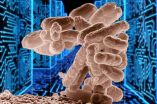(Press-News.org) The fishing industry usually discards fish livers, but a team of researchers from the University of Almeria (Spain) has confirmed that they are a good source of polyunsaturated fatty acids, which are beneficial to health. Anchovies are one of the fish whose livers contain the highest levels of these substances.
Fish livers have hardly been used to date, with exceptions such as cod livers, which are used to produce the well-known medicinal oil. In general, fishermen tend to throw fish entrails away into the sea, and if they make it to processing plants they are one of the first fish body parts to be discarded.
However, these organs contain compounds that are beneficial to health, according to a new study by scientists from the University of Almeria, which has been published in the Journal of Food Composition and Analysis.
"The livers of edible fish are a good source of long-chain polyunsaturated fatty acids (LCPUFA), especially those in the omega 3 family, such as eicosapentaenoic acid (EPA) and docosahexaenoic acid (DHA)", José Luis Guil-Guerrero, lead author of the study, tells SINC.
These fatty acids are used to prevent and treat various complaints, such as some kinds of cancer, depression, Alzheimer's disease, schizophrenia, behavioural problems and cardiovascular diseases.
The study focused on 12 kinds of fish that are commonly eaten in south eastern Spain, such as hake, shortfin mako and European pilchard. The livers of the great weever (Trachinus draco) and the European anchovy (Engraulis encrasicolus) were those that showed up the highest levels of LCPUFA (51.4% and 47.9% out of the total fatty acids, respectively).
In addition, all the species had a combination of omega-3/omega-6 acids that was "beneficial for human consumption", especially in the case of the liver of the blue whiting (Micromesistius poutassou).
"Unfortunately, discarding these livers means that all their nutritional properties are missed", says Guil-Guerrero, "and if they were used this would also reduce the environmental pollution caused by throwing innards into the water, which is an inherent problem in the fish product processing industry in coastal areas".
INFORMATION:
References:
Guil-Guerrero, José Luís; Venegas-Venegas, Elena; Rincón-Cervera, Miguel Ángel; Suarez, Maria Dolores. "Fatty acid profiles of livers from selected marine fish species". Journal of Food Composition and Analysis 24 (2): 217-222, March 2011.
Fish livers contain beneficial fatty acids
2011-04-29
ELSE PRESS RELEASES FROM THIS DATE:
Dr. Michael Collins publishes paper on ivory-billed woodpecker
2011-04-29
Dr. Michael Collins, Naval Research Laboratory scientist and bird watcher, has published an article titled "Putative audio recordings of the Ivory-billed Woodpecker (Campephilus principalis)" which appears in the March issue of the Journal of the Acoustical Society of America. The audio recordings were captured in two videos of birds with characteristics consistent with the Ivory-billed Woodpecker. This footage was obtained near the Pearl River in Louisiana, where there is a history of unconfirmed reports of this species. During five years of fieldwork, Collins had ten ...
New insight into chromosome segregation: Centromere-independent kinetochore assembly
2011-04-29
One of the most critical tasks that a dividing cell must accomplish is the successful delivery of a complete set of genetic information to each new daughter cell. Now, a study published by Cell Press in the April 29th issue of the journal Cell, provides fascinating new insight into the complex of proteins that orchestrates the proper segregation of human chromosomes during cell division.
During the process of mitosis, DNA and its associated packing proteins are arranged into structures called chromosomes that are duplicated and then segregated. Duplicated chromosomes ...
Nanotechnologists must take lessons from nature
2011-04-29
It's common knowledge that the perfect is the enemy of the good, but in the nanoscale world, perfection can act as the enemy of the best.
In the workaday world, engineers and scientists go to great lengths to make the devices we use as perfect as possible. When we flip on a light switch or turn the key on the car, we expect the lights to come on and the engine to start every time, with only rare exceptions. They have done so by using a top-down design process combined with the application of large amounts of energy to increase reliability by suppressing natural variability.
However, ...
Era of canopy crane ending; certain research and education activities remain
2011-04-29
The 25-story construction crane used since 1995 to investigate such things as how Pacific Northwest forests absorb carbon dioxide, obtain sufficient water and resist attacks by pests and diseases is being pruned back to just the tower.
The Wind River Canopy Crane, located in a 500-year-old forest near Stevenson in southwest Washington, has been operated cooperatively by the University of Washington, the Forest Service's Pacific Northwest Research Station and the Gifford Pinchot National Forest. The partners say the jib – the arm of the crane – is being removed because ...
Pediatric flu vaccination: Understanding low acceptance rates could help increase coverage
2011-04-29
A study of H1N1 and seasonal influenza vaccination in a sample of black and Hispanic children in Atlanta found a low rate of vaccine acceptance among parents and caregivers. Only 36 percent of parents and caregivers indicated they would immunize children against H1N1, and 22 percent indicated their children received the seasonal influenza vaccine in the previous three months. The majority of children in the sample (71 percent) were from households with less than $40,000 in annual income.
Researchers say this low level of vaccine coverage and acceptance highlights the ...
As the worm turns, its secrets are revealed
2011-04-29
An international team of scientists, led by researchers at the University of California, San Diego School of Medicine, have developed a new method for discerning the functions of previously uncharacterized genes and placing them in interactive, functional networks that reveal how gene products interact to bring about cellular events.
The research is published in the April 29 issue of the journal Cell. It was led by principal investigators Karen Oegema, PhD, professor of cellular and molecular medicine and head of the Laboratory of Mitotic Mechanisms in the Ludwig Institute ...
From the beginning, the brain knows the difference between night and day
2011-04-29
The brain is apparently programmed from birth to develop the ability to determine sunrise and sunset, new research on circadian rhythms at the University of Chicago shows.
The research sheds new light on brain plasticity and may explain some basic human behaviors, according to Brian Prendergast, associate professor in psychology at the University of Chicago and co-author of a paper published April 27 in the journal PLoS One. The lead author is August Kampf-Lassin, an advanced graduate student at the University.
"This finding may show us why infants of many species eventually ...
Get The Labels You Adore For Prices You Love at TK Maxx Crewe
2011-04-29
The long-awaited TK Maxx store is nearly ready to open its doors at the Grand Junction Retail Park, Crewe. This new store is set to open on Thursday 28 April at 9am and will feature nearly 20,000 sq ft of famous label fashion, shoes and accessories for men and women plus homewares, kids and toys - all at up to 60% off the RRP.
The first lucky 500 customers through the doors at 9am will be treated to a GBP10 gift card to spend in the new store.
The TK Maxx concept is simple. TK Maxx buyers shop the world all year round working direct with designers and negotiating ...
Study: Cotton swabs prove problematic for ear health
2011-04-29
DETROIT – A study by Henry Ford Hospital shows a direct association between cotton swab use and ruptured eardrum.
The study also shows that in most cases the rupture heals on its own and surgery is only necessary for the most severe cases.
"In the past, many otolaryngologists have wondered if surgery is really necessary to treat a ruptured eardrum. The results of this study show that 97 percent of cases healed on their own within two months, proving that most cases do not require surgery," says Ilaaf Darrat, M.D., an otolaryngologist at Henry Ford Hospital and co-author ...
Louisiana Tech researcher presents on eco-friendly nanotechnology at national conference
2011-04-29
RUSTON, La. – Dr. Yuri Lvov, professor of chemistry and T.C. Pipes endowed chair in micro and nanosystems at Louisiana Tech University, recently led a symposium at the 241st Conference of the American Chemical Society (ACS), discussing his application of a more eco-friendly and cost-effective nano-material that can be used to significantly improve the properties of plastics, paints and other synthetic composites.
The symposium featured Lvov's presentation on the use of clay "nanotubes" – created from dirt and soils found in a number of places on earth – to strengthen ...




